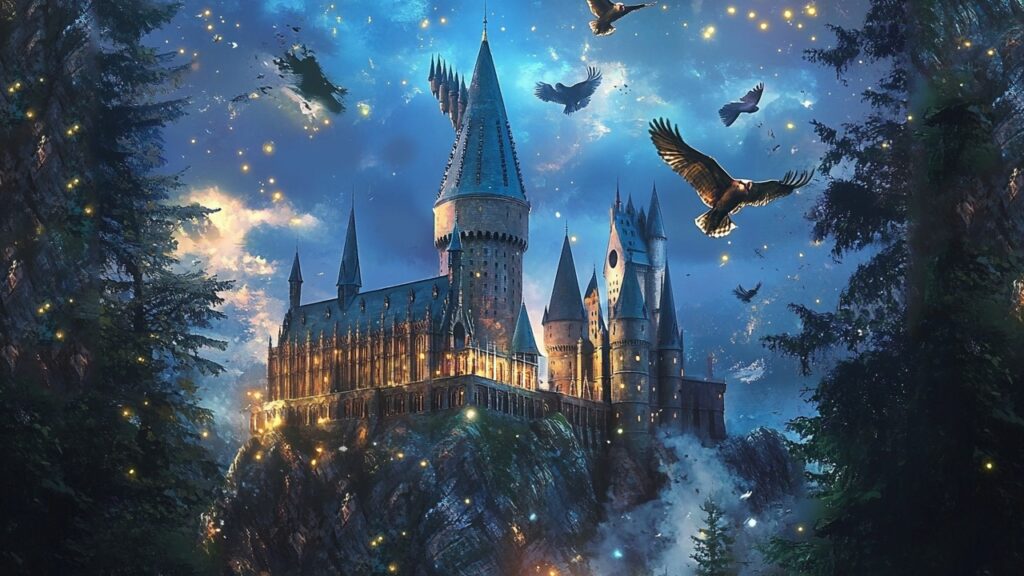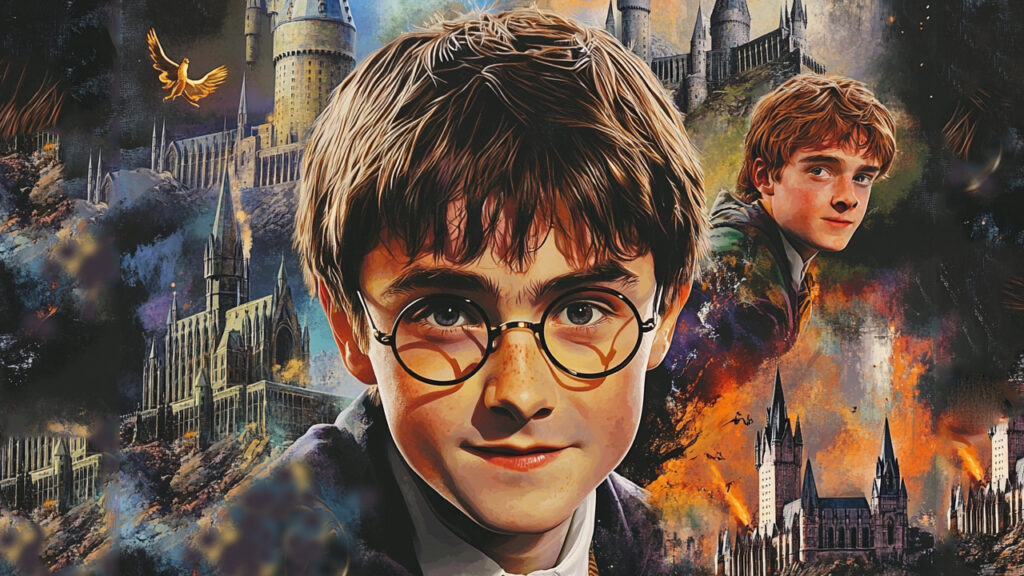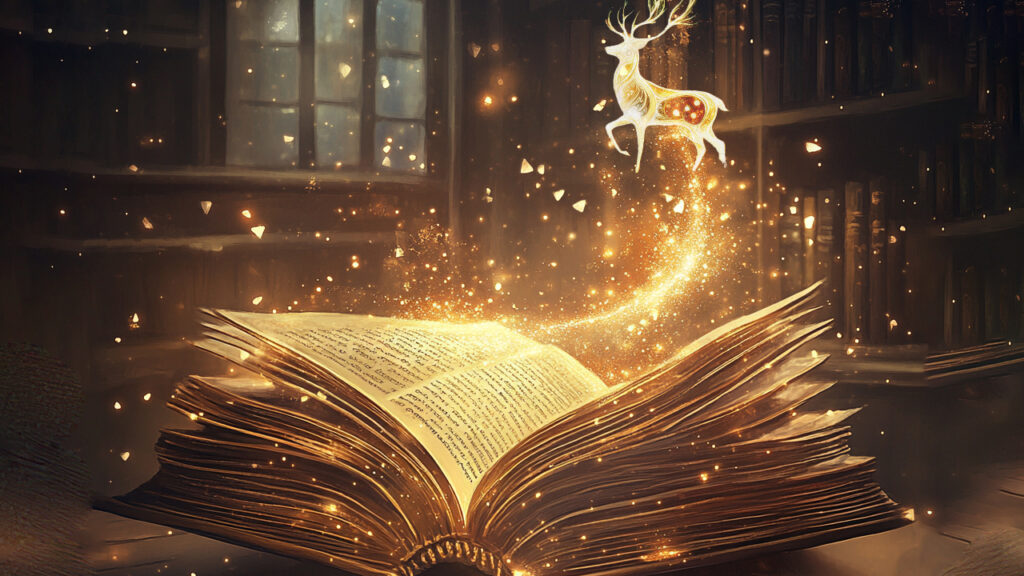Harry Potter has been influencing pop culture from the beginning of its journey. It has shaped and developed many sectors worldwide. The amount of Harry Potter’s influence on education is massive. From teachers to students all love to have Harry Potter’s touch in their works. There’s No doubt learning becomes more fun along with Harry Potter. Who would not love to have some fun time in their studies? If that fun is related to Harry Potter, I am down for it. The name alone brings a huge difference in the student’s mindset. The magical world brings smiles to the younger face as it has a light environment with intellectual motives. Harry Potter can change the world if people follow the ethics of it. The fans are trying their best to follow the ethics and apply them in reality. Some of the ethics of Harry Potter may have already worked in the real world without our knowledge. Harry Potter is a revolutionary work of literature that has brought many new positive changes in literature history. The new authentic style of its storytelling has made it a rich literary work in modern literature. Harry Potter is an influential work in many fields, and education and learning are the most important fields among them. As we all know, “Education is the backbone of a nation.”
The Hogwarts Effect on Reading Engagement
When the first book, Harry Potter and the Philosopher‘s Stone or Sorcerer’s Stone, in the US, was published in 1997, the historical beginning of a cultural phenomenon was marked. This book has not only captured the attention of readers of all ages but also has encouraged the children to become more enthusiastic readers. The mesmerizing world of magic, relatable characters, and engaging storytelling gave it a massive amount of young readers and pulled the readers to become habitual readers.

One of the most highlighted impacts of the Harry Potter books is how they inspire children to read more complex and longer books. Children mostly love to read books that are short in length and have an easy and predictable ending, but Harry Potter books have exceptions in them. Even though the books have been increasing in length, children were interested in reading them to learn about the mysterious stories. The seven Harry Potter books have been sold out in every edition. The Harry Potter and the Order of Phoenix book consists of seven hundred and sixty-six pages in the UK version and eight hundred and seventy pages in the US version, making it the longest book in the Harry Potter series. Children would wait till midnight for the midnight release to get their hands on the next volume. Children are eagerly waiting for a book. This eagerly is a rare scene to see particularly for children’s literature.
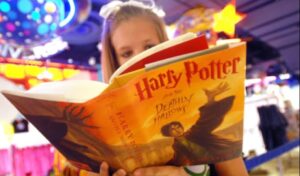
Several studies have shown that post-Harry Potter time, the number of readers among youngsters has grown dramatically compared to pre-Harry Potter time. According to a study done by the National Literacy Trust in the UK, 59% of children surveyed said that reading Harry Potter books has made them more interested in reading other books. The Harry Potter effect mostly changed the behavior of the boys. As compared to girls, boys don’t like to read books but Harry Potter books have brought them to like the books and focus on other book reading too. A 2006 report by Scholastic and Yankelovich, titled “The Kids & Family Reading Report,” indicated that more than 51% of children said that they had read the Harry Potter books, and nearly 60% of them had confirmed that reading the Harry Potter’s book helped them in developing their reading skill. A 2010 study by The Reading Agency in the UK found that Harry Potter books have a unique ability to reach children who never were interested in reading books. They had the motivation from the protagonist and the female lead who loves to read. Following their favorite characters and learning about their next adventure made them reluctantly interested in reading the Harry Potter books continuously.

Life Lessons and Moral Education
Harry Potter has given many life lessons to the world through its storytelling. It has themes like loyalty, friendship, bravery, justice, and the encouragement to stand up for what is right and fight against the bad. These themes help the young students to learn good habits and the importance of relationships. Also, educators get a chance to foster critical thinking and personal development in students as they can relate to the characters of the Harry Potter book series.

Harry Potter is known as a book for all ages and it has given proof of it many times. Harry Potter’s influence on education is undeniable as it has covered both moral and ethical purposes of a student, moreover, of a human and helped them to learn kindness and love for every creature that exists. Let’s find out about Harry Potter’s contribution to life lessons.
a. Loyalty and Friendship:
One of the most prominent and most admired themes of Harry Potter is the importance of loyalty and friendship. Harry, Hermione, and Ron are the main attractions of the series. Their loyalty to one another has been tested over and over again, and all the time, they only said one thing to Harry which is, “ We are together in this.” They always stay together and get in trouble together. Professor McGonagall once asked the trio, “Why is it when something happens, it is always you three.” As it is common to have the trio in her office after something unusual happens. Even though they had many conflicts among themselves throughout the journey, their unconditional and unwaering support for each other teaches us the value of friendship and loyalty.
Examples:
- In Deathly Hallows, despite Ron’s frustration and departure, he returns and helps Harry in destroying Horcruxes.
- Hermione stands up for Harry even when the whole school is against him in the Order of Phoenix.
- In The Philosopher’s Stone, Hermione and Ron were with Harry from the beginning to the end in all danger. Even Ron put his life at stake to help Harry reach his goal despite that being their first stage of friendship.

b. Bravery and Courage:
From the beginning, the protagonist, Harry Potter, has been the symbol of bravery. From the beginning, every single person is afraid of speaking up about the name of Voldemort and mentions him as “He Who Must Not be Named,” though Harry always calls him Voldemort, showcasing that he is not afraid of him. He confronted Voldemort and fought against him despite knowing the fact that he had a life risk in it.
Examples:
- Neville Longbottom stands up to his friends in Philosopher’s Stone, showing that bravery can also mean doing the right thing even when it’s hard for you to do.
- Harry willingly walks to his death to protect others from Voldemort in Deathly Hallows.

c. Sacrifice and Empathy:
Characters in Harry Potter have made many sacrifices to protect their loved ones. Even Professor Dumbledore sacrifices his life to protect Draco Malfoy who was a negative character at some point. This teaches us about empathy, love, and the power of sacrificing for the greater good.
Examples:
- Lily Potter’s sacrifice to protect Harry from Voldemort creates a protection of love around Harry. This sacrifice is the main foundation of the series.
- Dobby’s willingness to save Harry and his friends in Malfoy Manor caused his death. Dobby, the house elf, has sacrificed his life simply because he cared for Harry and his friends. On the contrary, if he hadn’t sacrificed himself, the story would have come to its end unexpectedly, and the goal of Harry would have stayed incomplete.

Harry Potter in School Curriculum
Harry Potter has been used in many school curriculum activities. Teachers have gradually accepted Harry Potter to be an influencing work for education. From English literature and creative writing to media studies and even philosophy, Harry Potter offers a wealth of opportunities for teaching critical thinking, analysis, and the exploration of themes, morality, and social justice. This Harry Potter-based curriculum has effectively sparked the student’s interest and promoted discussion on a wide range of topics.

1. English Literature
Harry Potter has been used in the English literature Curriculum, particularly in middle and high school settings. Teachers use the series to teach the students literary elements such as character development, symbolism, narrative, structure, and theme analysis. Students explore how J.K. Rowling has developed characters and gives some complex background to them and how one character develops their personality into a mature person from a child. They explore symbols like Harry’s scar, and the scar’s importance can be seen later in the last book, Deathly Hallows. Teachers give tasks like character analysis to the students so that they can learn about literature while having fun. Complex characters like Dumbledore, Snape, and Voldemort are worth finding out.
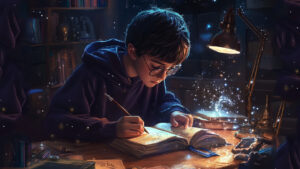
2. Creative Writing
The magical world of Harry Potter has also become a creative writing exercise for the students. Many teachers are encouraging the students to write their own personalized stories, their magical world, and write fanfics that will end as they want. This method not only improves writing skills but also helps the students to understand the mechanics of storytelling. Describing places like Diagon Alley and Hogwarts Castle perfectly helps them create brilliant stories with amazing descriptions. Harry Potter’s influence on education helped the teachers to make the students interested in reading and creative things. The libraries of the schools and colleges have the Harry Potter series reserved for the students to read. 
In conclusion, the influence Harry Potter has on education can be called a blessing for the new generations. When some of the students don’t know about the fun of reading books you can suggest they read the first Harry Potter book for once. This will help them build up a habit of reading books and shaping their personality as a good child, a good friend, a good student, and many more. These methods give students a chance to explore their creative minds as they get to analyze the series and create new stories or other extra activities. Whether through literary analysis, creative writing exercises, or philosophical debates, Harry Potter continues to inspire critical thinking and a deeper understanding of the world, making it a beloved and effective educational resource. 


